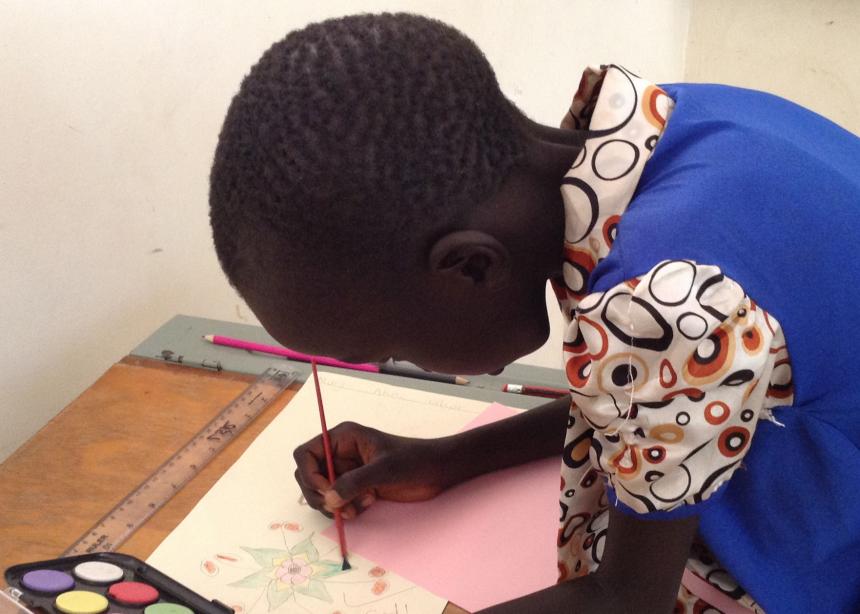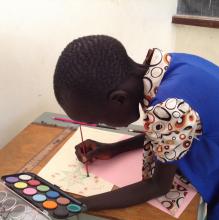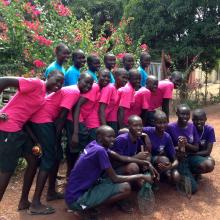When South Sudan became an independent country in 2011, hopes were high and the future looked bright. But conflict broke out in 2013, and violence has ebbed and flowed ever since then.
Education levels remain consistently low. Only half of the primary school teachers have more than a primary school education themselves. The national literacy rate is only 27 percent, and for women it’s only 16 percent. According to the United Nations, a 15-year-old girl in South Sudan is more likely to die in childbirth than finish secondary school.
Yet in the middle of the country, five kilometres outside of the town of Rumbek sit Loreto Primary School and Loreto Girls Secondary Boarding School, where Mennonite Central Committee (MCC) is supporting education and teaching peacebuilding skills.
MCC supports a meal program, provides teacher training, and supports a peace club to reduce conflict. In addition, MCC has provided 14,000 school kits to the Loreto schools and other schools in South Sudan.
Two MCC workers are assigned to the Loreto schools: Candacia Greeman, a teacher/teacher trainer, and Benjamin Sprunger, an administrative capacity builder.
Greeman shares new techniques to improve the quality of education at the school. She has shown teachers how to do science projects, including a rain-gauge experiment. Teachers have also learned how to use drama, songs and poems to teach difficult concepts in a more engaging way.
Sprunger is in charge of an agriculture-sustainability project at the Loreto schools. Students tend crops on the schools’ farm, growing peanuts and vegetables such as tomatoes, cassava, kale and spinach for school lunches. Having a meal at school increases attendance and provides students with more nutritious food.
Farm work also helps reinforce what students are learning in science class and teaches farming skills that students can use at home. With MCC support, the school added three hectares to the farm, and in 2015 the garden produced enough peanuts to add peanut butter to the breakfast menu.
In addition to food for the body, MCC nurtures peaceful relationships at the schools.
The Loreto Peace Club at the secondary school uses an MCC Peace Clubs curriculum developed in Zambia. Twenty-four students have been selected to be club members, either because they have an interest in peacebuilding or because they’ve been involved in conflict.
Members of the club are trained in conflict resolution and peacebuilding, and share what they’ve learned with other students and the community.
Throughout the year, Peace Club members host cultural presentations at the school, featuring skits, songs and poems about conflict resolution. The club holds Peace Day once a year, which is filled with dancing and sports to celebrate the country’s independence while also promoting peace.
The peace club also has set up a “big sister/little sister” mentoring program between the girls’ secondary school and the primary school. In addition to baking together and having a weekend slumber party, the older mentors use art therapy to help children resolve issues and manage their behaviour and feelings.






Add new comment
Canadian Mennonite invites comments and encourages constructive discussion about our content. Actual full names (first and last) are required. Comments are moderated and may be edited. They will not appear online until approved and will be posted during business hours. Some comments may be reproduced in print.